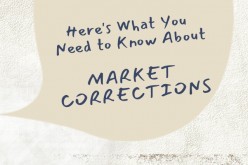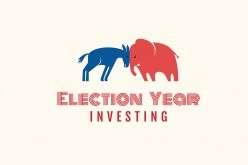For the first time in a long time, travel is becoming a real possibility. The pandemic hasn’t disappeared (and it’s not going away any time soon) but we’re turning a corner. More of us are getting vaccinated against COVID-19 every day, and more of us have a ready-to-travel mindset. After months of doing everything from home, we’re ready to get out — and really get away! And we’re not wasting time. About 2 in 3 folks say they have a trip planned within the next 3 months. Most are looking to get out of state or go abroad. That’s more than since the beginning of the pandemic. TSA airport screenings are up. As excited as we are to get out of our COViD-19 caves, we’re also anxious. We’re worried about getting sick or stuck in our destination. And we fear the unknown.
These worries are valid. But we can manage
Blog
Welcome to our Blog! At Baron Silver Stevens, we feel it is important to empower our clients with information that can positively affect their lives.
Throughout our Blog, you will find interesting articles, updates on our firm, and practical financial planning tips.
Throughout our Blog, you will find interesting articles, updates on our firm, and practical financial planning tips.
Do you think you’re telling yourself the truth about money?
We may think we know the facts about our finances. But our beliefs can often overshadow the facts.
Our wishes, hopes, and fears can tip the scales away from the truth. This makes it easier for us to believe what we want to about money — and it can happen without us even realizing it.
The money lies we tell ourselves can change the way we think and act when it comes to finances.
And since most of us rarely talk about money with our friends and family, the money lies we tell ourselves stick around. That can lock us into destructive beliefs and reinforce poor financial habits.
But no matter what money lies we tell ourselves, it’s never too late to set the record straight.
Click here to take a look at the 7 most common money lies we
A million dollars used to be the ultimate target for retirement portfolios. Retiring as a millionaire brought status and confidence that you could live comfortably during your golden years.
If you retired with $1 million in 1970, you probably didn’t have to worry about your nest egg running out, even with a lavish lifestyle. It would be like retiring with $6.9 million today.
Retire with $1 million in the ’80s, and it would have been like retiring with $3.35 million in 2021.
And in 1990?
A cool $1 million would have gone twice as far as it does these days.
Clearly, $1 million doesn’t go as far as it used to.
Just how far could it go these days?
The answer depends on how and where you live.
In retirement, as in real estate, location is everything (or, at least, it’s a lot). Click here to see a map that
Forbes recently released their rankings for 2021’s Best-In-State Wealth Advisors, spotlighting more than 5,000 outstanding wealth advisors across the country. Baron Silver Stevens Financial Advisors, LLC’s Chief Executive Officer, Michael J. Silver, CFP®, AEP®, CLU, was named amongst those standout wealth advisors.
Michael ranked 21st in South Florida, marking a distinguished acknowledgement for his years of experience, proficiency, and focus on making a positive impact on his clients’ lives. Those nominated for the prestigious Best-In-State recognition were researched, interviewed, and then given a ranking within their particular states.
Michael’s inclusion in 2021’s Best-In-State Wealth Advisors highlights his dedication to his clientele, his more than 20 years of experience in the field, and his commitment to making an impact in the comprehensive wealth management industry.
The selection process was based on an algorithm of both quantitative and qualitative criteria including components such as in-person interviews, compliance records, industry experience, revenue produced,
What is your biggest obstacle to achieving your goals in 2021?
It’s not a lack of time or bad timing. It’s not age, ability, or finances. And it’s not even the coronavirus. Believe it or not, research says it’s you. In fact, most of us trip ourselves up when it comes to achieving our goals. That includes New Year’s resolutions. Even when we have the best intentions, we can get in the way of our own progress. And that’s far more likely to happen during times of uncertainty.
That’s when we tend to stagnate. We avoid long-term plans and push pause on our big goals. And we become paralyzed by uncertainty. Sometimes, that means we simply give up on setting goals entirely.And, yet, New Year’s goals help us. They give us a sense of control and keep us grounded in unpredictable times. And they can help us cope with uncertainty
No one could have foreseen the events of 2020.
It was a tumultuous year. The pandemic overshadowed everything. Fires, hurricanes, protests, and the election dominated headlines. So did Tiger King, toilet paper shortages, major events held over Zoom, and everyday heroes.
For me, one of the biggest standout memories of 2020 has been the creative ways people and businesses have adapted in the pandemic.
What moments from the last year stand out for you?
Whatever they are—and whatever your verdict on last year may be—we can all agree 2020 has been disruptive and unforgettable.
It’ll be fascinating to see how history looks back at 2020 and what big lessons future generations take away from the past year.
As the year closes, here are some of the best life lessons we can take away from 2020 right now. Bringing these lessons with us into 2021 can help make life better and
Market corrections hurt. They can come out of nowhere. And when they do, they ignite fear, amplify worries, and set off alarm bells.
It’s hard not to panic when that happens. And it’s tempting to react and want to pull back.
Many people give in to that temptation.
Informed investors don’t.
Why?
Because they know most market corrections are short.
In fact, over the past 70 years, corrections have been getting shorter and shorter. These days, the average correction is over within four months.
Those are just a couple of reasons why you shouldn’t panic over corrections. Below are more.
If you know these facts about corrections, you can keep a level head and healthy perspective whenever the markets retreat. That can help you avoid overacting. It may even open your eyes to new opportunities.
Below is an overview of some market correction facts, click here to view our monthly
About 4 out of 5 people say they are too smart to be scammed. Most also believe they’re better than others at spotting scams. Yet, scams work — and they’re more prevalent and profitable than ever before. In fact, every 15 seconds, someone’s getting scammed.
Each year, that’s billions lost. Seniors alone lose at least $2.9 billion a year to con artists. And they aren’t even the most vulnerable marks. Millennials are.
So, why are financial scams more rampant and lucrative than ever before? Technology and the internet have been key. They’ve given scammers a better smokescreen and a global reach. They’ve also made it easier to perpetrate mass fraud schemes.
Beyond having better tools, scammers also have better prey these days. The uncertainties of the day have made it easier to manipulate and con people. After all, we’re naturally averse to uncertainty. It scares us. It makes us desperate
Would you choose to live right now?
Objectively, things aren’t easy for most of us right now. We’re facing social, economic, health, and environmental crises.
With all the chaos of today, it can be tempting to lean on nostalgia and believe previous generations had it better or easier. And it can make us long for what seem like simpler times.
In our newsletter this week, we go over the "7 Reasons Life Is Actually the Best It's Ever Been". Take a look at a few below:
1. LIFE EXPECTANCY
We're living longer than people have ever lived before. Worldwide, more than 3 in every 4 people live to be at least 65 years old. In the U.S., life expectancies for men and women have increased by more than 10 years since 1950.
That's 10 more years the generations before us didn't have to enjoy retirement, spend time with family, and
Do you know what one of the number one causes of market losses during an election year is?
Fear.
In fact, the uncertainty of the elections can stoke your fears. It may even encourage you to make rash, emotional decisions.
That can lead to losses, but it doesn’t have to.
If you know the facts about the market during presidential election years, you can potentially avoid investing mistakes that so many others make.
“Investing should be like watching paint dry or grass grow. If you want excitement… go to Las Vegas.”
That’s what Paul Samuelson, a noted economist and Nobel Prize winner, says—and that’s not always easy to remember during presidential election years.
Why?
The frenzy of an election brings endless news cycles, high emotions, and stress. And if you feel that stress, you’re not alone. At least half of all Americans get stressed out by elections.
You know the













